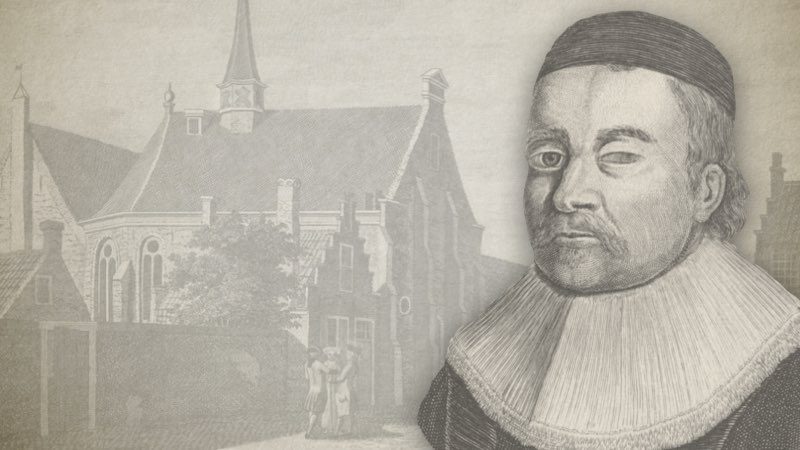Johannes Maccovius
Johannes Maccovius (1588-1644) was a Polish Reformed Theologian, subscribing to a Supralapsarian scheme of God’s decree with only two permanent and perpetual covenants—works, between God and Adam; grace, between the Persons of the Godhead.
Maccovius was born in 1588, Lobzenica, Poland. In 1615, he was appointed professor of theology at the University of Frandeker, Netherlands, where he enjoyed much success until his death in 1644. He took a supralapsarian view of God’s decree (similar to that of Theodore Beza), believing there to be only two permanent and perpetual covenants—one of works made with Adam and another of grace made between the Persons of the Godhead. He understood the eternal covenant of grace to be administered by God in time by the effectual power of the Holy Spirit. William Ames disparaged this view, believing the eternal covenant between the Persons of the Godhead is distinguished from a covenant of grace God makes with sinners in time. Whereas Ames’ view of covenant theology became the framework of seventeenth century Hyper-Calvinism (articulated in the major Confessions of 1646, 1658 and 1689), Maccovius’ view became the covenantal framework of eighteenth century Hyper-Calvinism (articulated by theologians such as John Gill, William Huntington and Robert Hawker). Isaac Chauncy (1632-1712), an English non-conformist minister, together with Benjamin Keach (1640-1704), an English Baptist minister, argued for Maccovius’ view of covenant theology towards the end of the seventeenth century.—J Smith
-
The Life And Ministry Of Johannes Maccovius
Johannes Maccovius (Jn Makowsky): Polish Reformed theologian; b. At Lobzenie, Poland, 1588; d. At Franeker, Holland, June 24, 1644. After visiting various universities as the tutor of young Polish nobles, and holding disputations with Jesuits and Socinians, he entered the University of Franeker in 1613. There he became private-docent in 1614 and professor of theology in 1615. Theologically he was a rigid Calvinist of the extreme supralapsarian school, and these of the corresponding character, defended in 1616 by one of his pupils, involved him in a controversy with his colleague Sibrandus Lubbertus (q.v.) which was settled only by the Synod of Dort in 1619. The synod, while neither approving nor condemning his supralapsarianism, acquitted Maccovius of the charges of heresy brought against him, but advised…

